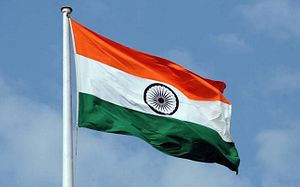In October 2016, the Indian National Human Rights Commission (NHRC) directed the state government in Maharashtra to submit a report regarding the alleged death of more than 700 tribal students in the state-run “ashram” schools. Despite a reminder in November, no report was forthcoming, thus adding to the ire of the NHRC. In late January 2017, the Maharashtra government was pulled up once more by the NHRC – this time to explain the deaths and allegations of abuse of about 500 schoolgirls in these schools.
These incidents came to light when two young girls in separate instances reported bodily pain when they came home and upon medical examination displayed evidence of sexual abuse. The schools, of which there are more than 1,000 across the state, reportedly keep menstrual records of the female students and force urine-based pregnancy tests when the students miss their periods or come back from extended vacations without parental consent.
This came to light through media reportage, which pointed to what the NHRC termed as negligence on the part of the authorities, which it further saw as “indicative of the violation of the right to life and dignity of the girl students.”
A state committee constituted for looking into these circumstances and suggesting corrective measures has estimated that nearly 1,500 tribal students have died in these schools over the past 15 years. In these residential schools, which are primarily frequented by children belonging to tribes given Scheduled Tribe status under the government, the cause of death in the overwhelming majority of the cases was reportedly vague or unknown.
The panel’s investigation also unearthed alarming findings regarding the general levels of care the students received, revealing sub-par nutrition levels, lengthy and unhealthy intervals between meals, and the questionable quality of the meals themselves. The committee, which was headed by the director-general of the state’s public health services, was further requested to remain in action until results based on its recommendation were achieved.
Now, the NHRC has given the state government six weeks to launch a probe and file a detailed report regarding the mass deaths as well as the circumstances surrounding them. It is imperative that the NHRC keeps a firm hold over this escalating case, especially if the government once more fails to comply with this notice or further take immediate steps to tackle the cause of these deaths.

































